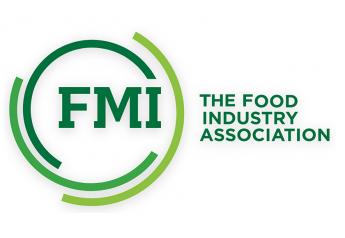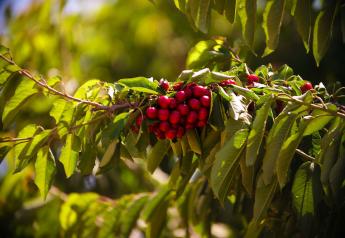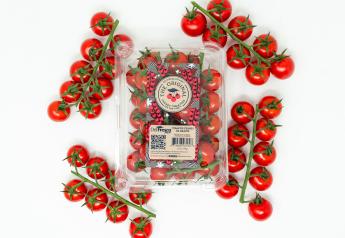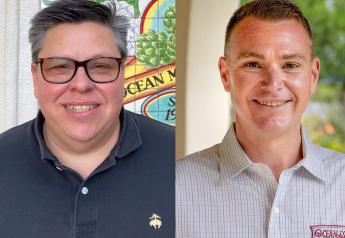Consumers turn to nuts, dried fruit for healthy snacking
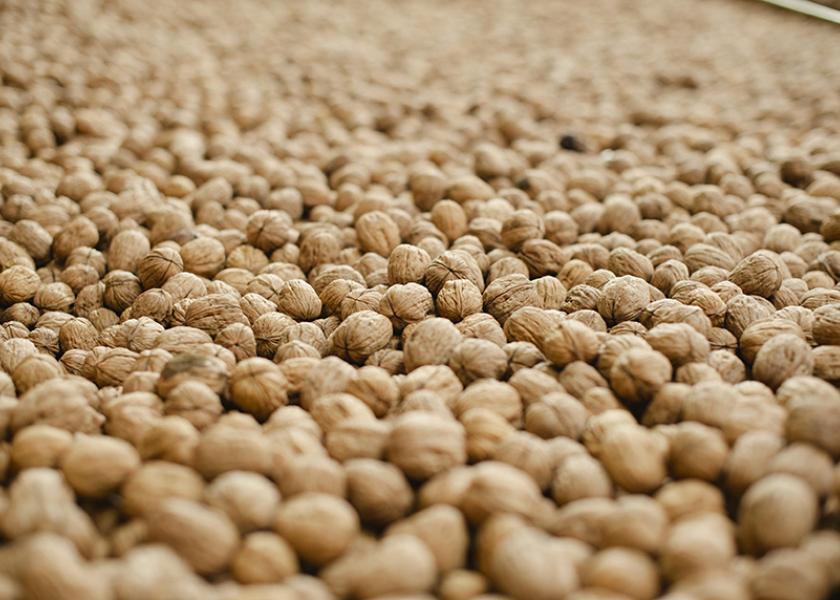
Consumers who feel they’re seeing more dried fruits and nuts these days are both observant and correct.
As Americans increasingly look to eat nutritionally dense snacks, explore food —especially plant-based — and eat on the go, these categories are ripe for growth and innovation.
To that end, manufacturers and trade associations are launching memorable marketing and advertising campaigns, designed to appeal to the masses, but especially to millennial and Gen Z shoppers, who are strong snackers.
Advertising driven by the California Walnut Board and Commission, Folsom, Calif., has been mostly focused on the functional benefits of walnuts, their versatility in the kitchen and their simplicity, such as 2019’s “Life Isn’t Always Simple” campaign.
More recently, the board launched a new digital campaign in the spring aimed at helping consumers discover new ways to use walnuts. The new advertising is part of the “Do More with Walnuts” campaign. Also in the spring, the Walnut Board released its third annual “Power of 3” campaign, which is designed to increase awareness about the benefits of omega-3 fatty acids in walnuts.
The California Walnut Board also does a big promotional push around the holidays, when consumers gravitate to walnuts. Displays get bigger and shippers more prominent, and are designed to tout walnuts, as well as new, smaller-sized packages and the different flavors in which they’re available, says Robert Verloop, executive director and CEO. These promotions last into the new year, when the board focuses on health to satisfy new year resolutions and then into February with American Heart Month.
The Almond Board of California, Modesto, has ongoing campaigns that focus on health and nutrition, but also heavily on lifestyle, in traditional and social media marketing.
The board’s most-recent campaign took a different turn and was in conjunction with Marvel Studios, promoting both California almonds and the new “Thor” movie, between mid-June and mid-July. Richard Waycott, the board’s president and CEO, says he’s “seeing more of these unique partnerships,” which involve no costs to partner companies and unique marketing for both parties.
Joolies, which is based in Santa Monica, Calif., and has a 1,000-acre farm and 100,000-square-foot facility in Coachella, Calif., aims to always have its date products in the produce department of grocery stores and offers floor displays and shippers to retailers. It also runs regular campaigns, as well as floor display campaigns “that help increase visibility to the brand,” says Amanda Sains, marketing director. “We try to target seasonal time periods for these, such as the holiday around baking, or around Ramadan and Easter when medjool dates are part of those celebrations.”
For a recent monthlong campaign with seven-unit Erewhon in Los Angeles, the company ran a special Dancing Date Shake smoothie at the stores’ smoothie bars. “It was a way to build awareness that dates can go in smoothies, and we sell [our dates] there, too,” Sains points out.
On social media, Joolies likes to collaborate with other emerging brands for giveaways, “as well as create recipes and invite our audiences to share how they're ‘date-ing’ with Joolies,” she adds.
But Joolies dates also sell themselves. The products, which were launched in 2018, are in fun, brightly colored packaging that stands out.
The innovation game
Innovation also helps keep demand strong for dried fruits and nuts. Joolies offers snack packs (containing three pitted dates), pitted and non-pitted dates, Jooliettes (chocolate-covered diced dates) and a single, pitted, wrapped date called Single and Ready To Mingle, which is available on Amazon and in a major streaming service’s business cafeteria. Joolies also sells Ugglies (made from lower-grade fruit) and date syrup in regular, cinnamon and cocoa flavors.
Traditional, unflavored almonds and walnuts drive business for Mariani Nut Company, Winters, Calif., “but we offer flavors to encourage people looking for healthy snacks,” says Kristen Holden, senior brand manager, who points out that the company’s website puts the flavored products front and center.
And, a couple of years ago, Mariani introduced larger, 2-pound pack sizes, “as consumers were looking for more pantry-stocking and we’re selling more of those,” Holden says, with a particular spike of them at the holidays. Conversely, a 1.5-ounce tube also sells well, destined for school lunches and other snack occasions.
Sustainability aims
Almonds have come under fire in the past decade for purportedly requiring more water to grow than other nuts, but this has been debunked in recent years, and almond and walnut trees are both very efficient at capturing carbon from the air.
Almonds have very little waste, says Richard Waycott, of the Almond Board. The actual almond kernel makes up just 30% of the whole, he said; another 25% is the shell, which is ground up and used in livestock bedding; and 50% is the hull, which is used in cattle feed. When trees are no longer viable, they are chipped, then incorporated back into the ground, adding nutrition and capturing carbon. As the wood breaks down, it helps with water retention.
California walnut growers and processors are constantly looking into water quality and conservation, soil health, energy use, and air quality, with the goals of minimizing waste, enhancing productivity, and preserving and protecting natural resources.
And since walnut trees are so large, they absorb sunlight instead of reflecting it back. “And they’re a tremendous natural resource, because we don’t disturb the soil once we’ve planted the trees, except for some weeding,” Verloop said. “We really look at how we can leave the soil better than we found it, which is one of the tenants of sustainability.”
When walnut growers remove the husks, which are the outer part of the walnut, they go back into the soil, “so we have a strong sustainability message,” he adds. “It’s a cat litter product and used in oil drilling and in cosmetics, so there are a lot of downstream uses of the walnut shell. It shows the flexibility and the utilization of the entire nut.”
Manufacturers are doing their part, too, and Joolies is an excellent example. All of the company’s dates are organic and the company uses no herbicides, pesticides or fungicides. The date palm trees are also efficient at capturing carbon, and all byproducts of growing the dates are used — palm fronds become fertilizer and lower-grade fruits are upcycled into Ugglies and date syrup; any other parts, such as pits, go into cattle feed.
And the company’s packaging is sustainable. Made from cardboard, it’s recyclable, although CEO Mark Masten admits, “there is an economic impact of that, too.” The company’s main line uses 98% less plastic than other date companies, Masten adds.
“If, or when, plastic is used in any of our other product lines, we do so with mindfulness and make decisions that the best possible option, such as postconsumer recycled material, is used,” he said.
“We’re constantly evolving and hoping to find innovation that is both better for the earth and good business at the same time,” says Masten. “Home-compostable is our goal, but right now, that material does not suit our specifications for medjool dates’ shelf life.”
Joolie’s Singles are wrapped in a single-layer film — the thinnest amount of material possible, because that’s easier to break down and, thus, more sustainable — and it can be recycled with plastic bottles if placed inside them.
Mariani Nuts are not yet available in sustainable packaging but the company’s researching it, says Holden. “We’re looking at what requirements and expectations and what do consumers want. The struggle is, you want to be as affordable as possible and those packages aren’t necessarily the most affordable. But you also want to keep your product fresh, so we need resealable packages.”
Industry challenges
The biggest challenges for Mariani Nut are the California droughts, “which are a huge burden,” says Holden, as well as issues with shipping. The company still has a significant part of last year’s harvest sitting in warehouses along the supply chain, as it enters the harvest season for 2022. “We can’t get the product out of California fast enough because of the shipping issues,” she said.
Labor is also tricky. Mariani has year-round labor, but requires more at harvest, “and just finding good talent and retaining them is difficult.” The company stays connected to the local community and tries to treat workers well, including reducing their hours, but even that’s tricky. “It’s a delicate balance because [workers] want to work and make a wage,” she said.
Recent problems such as freight costs and the availability of shipper containers and drivers are resolving themselves for the almond industry, says the Almond Board’s Waycott, who adds that drought remains the biggest problem for almond growers, along with increasing input costs.
Educating consumers about dates, and their difference from prunes, is always a challenge on the marketing side for Joolies. Otherwise, “rising costs of freight, raw material and long lead times have become challenging since the pandemic supply chain strain — and now inflation,” says Masten.


